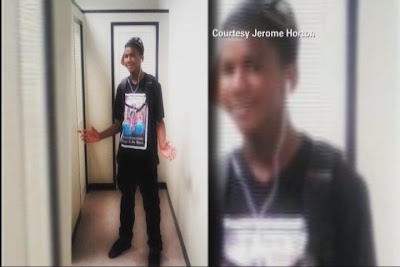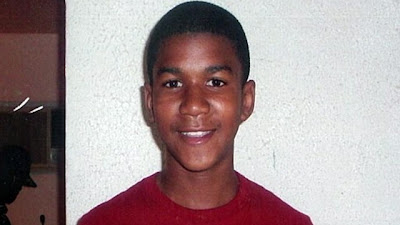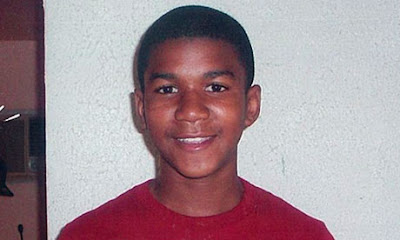
TRUE FEAR: The deep survival emotion brought on by threat; the feeling that comes from a place unknown but now surely rides in the hearts of black parents since 17-year-old Trayvon Martin was murdered. A civil rights history lesson and a quick telling of a personal incident may add clarification:
Most African American families know the story of Emmett Till, a 14-year-old Chicago student who back in the summer of 1955 was tortured and murdered in a small tool shed located in the heart of the Mississippi Delta. The two angry white men who killed young Till alleged he whistled at one of their wives, who at the time was watching over the family grocery store while her husband was out of town.
After playing checkers and sharing jokes with his cousins on the front porch of the grocery, Till entered inside with his cousin and bought a piece of candy. He apparently annoyed the woman, and three days later Carolyn Bryant's husband and his friend tracked down the young schoolboy. Carolyn may have been with them on this late-night trip, it is alleged to this day.
Emmett Till was thrown into a pickup truck and driven to a neighboring county where the men forced him into the shed and beat him for hours before shooting him and tossing his corpse into a nearby river. They were acquitted a month later, and today's historians assert that Emmett Till's murder was the spark that drove the modern civil rights movement; Rosa Parks later wrote how she decided to sit at the front of a Montgomery city bus, after hearing that Till's murderers were set free. Parks had already planned her move, but was looking for the right time.
Till's murder was the first media event of the modern Civil Rights Movement, demonstrating the horrors of racism in news stories circulated throughout America and around the world. Hundreds of thousands of people walked past his open casket in Chicago, where his body was returned at the insistence of his mother. African Americans clearly understood they were under attack and that once again, no black male in the South was safe.
YEARS AFTER EMMETT TILL'S MURDER, the story of his lynching is still regularly told to countless young black children by their parents as a cautionary tale, a way of keeping African American youngsters from experiencing a similar fate.
Back in the late 50s, and even before this particular murder, a typical parent's message included: "Don't go out at night by yourself - or even with others; say 'yes sir' and 'no ma'am' when addressing white folk; look down when you come upon a white person in your path, step into the street if you have to, rather than use the sidewalk," black children were warned. The last warning was more chilling: "If you don't do what we say, you could end up like Emmett Till."
A friend first told me about Till as we roamed the Delta in 2003 while researching a book I wrote two years later. Where Rebels Roost; Mississippi Civil Rights Revisited, I hoped would represent a new look at the Mississippi Civil Rights Movement from the time that enslaved Africans arrived in Mississippi through 2005 as criminal cases and trials continued.

















